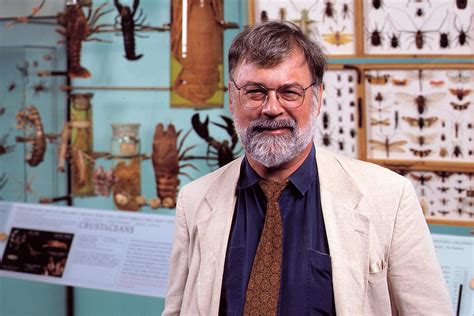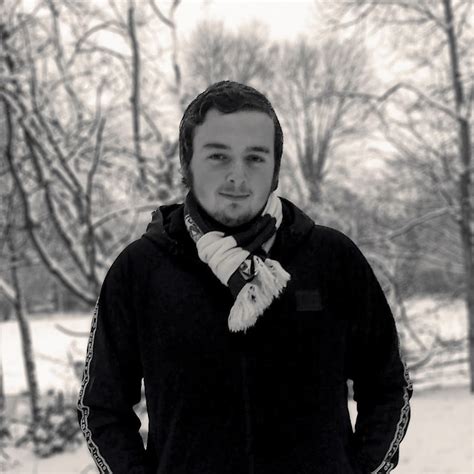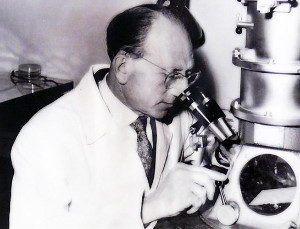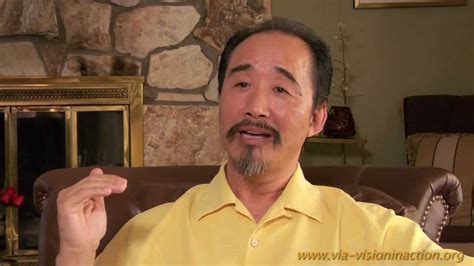A Quote by Niles Eldredge
Paleontologist Niles Eldredge, a prominent evolutionist, said: 'The doubt that has infiltrated the previous, smugly confident certitude of evolutionary biology’s last twenty years has inflamed passions.' He spoke of the 'lack of total agreement even within the warring camps,' and added, 'things really are in an uproar these days . . . Sometimes it seems as though there are as many variations on each [evolutionary] theme as there are individual biologists.'
Related Quotes
Considering that we live in an era of evolutionary everything---evolutionary biology, evolutionary medicine, evolutionary ecology, evolutionary psychology, evolutionary economics, evolutionary computing---it was surprising how rarely people thought in evolutionary terms. It was a human blind spot. We look at the world around us as a snapshot when it was really a movie, constantly changing.
If it is true that an influx of doubt and uncertainty actually marks periods of healthy growth in a science, then evolutionary biology is flourishing today as it seldom has flourished in the past. For biologists collectively are less agreed upon the details of evolutionary mechanics than they were a scant decade ago. Superficially, it seems as if we know less about evolution than we did in 1959, the centennial year of Darwin's on the Origin of Species.
If belief in evolution is a requirement to be a real scientist, it’s interesting to consider a quote from Dr. Marc Kirschner, founding chair of the Department of Systems Biology at Harvard Medical School:
“In fact, over the last 100 years, almost all of biology has proceeded independent of evolution, except evolutionary biology itself. Molecular biology, biochemistry, physiology, have not taken evolution into account at all.
We add that it would be all too easy to object that mutations have no evolutionary effect because they are eliminated by natural selection. Lethal mutations (the worst kind) are effectively eliminated, but others persist as alleles. ...Mutants are present within every population, from bacteria to man. There can be no doubt about it. But for the evolutionist, the essential lies elsewhere: in the fact that mutations do not coincide with evolution.
Darwin's principle of natural selection leads to the prediction that the proper way to analyze any evolutionary development is to see the new features as adaptive to environments. And that's a perfectly good principle. The problem is that there are many evolutionary biologists who view everything that happens in evolution as directly evolved for adaptive benefit. And that just doesn't work. Whenever you build a structure for adaptive reasons, the structure is going to exhibit properties that have nothing to do with adaptation. They're just side consequences.
In a very real sense, therefore, advocacy of the doctrine of continuity [i.e evolutionism] has always necessitated on retreat from pure empiricism [i.e., logic an observation], and contrary to what is widely assumed by evolutionary biologists today, it has always been the anti-evolutionists [i.e creationist], not the evolutionists, in the scientific community who have struck rigidly to the facts and adhered to a more strictly empirical approach... It was Darwin the evolutionist who was retreating from the facts.
Speciation does not necessarily promote evolutionary change; rather, speciation 'gathers in' and guards evolutionary change by locking and stabilization for sufficient geological time within a Darwinian individual of the appropriate scale. If a change in a local population does not gain such protection, it becomes-to borrow Dawkins's metaphor at a macroevolutionary scale-a transient duststorm in the desert of time, a passing cloud without borders, integrity, or even the capacity to act as a unit of selection, in the panorama of life's phylogeny.
The more evolutionary theory gets called an atheistic theory, the greater the risk that it will lose its place in public school biology courses in the United States. If the theory is thought of in this way, one should not be surprised if a judge at some point decides that teaching evolutionary theory violates the Constitutional principle of neutrality with respect to religion.





























